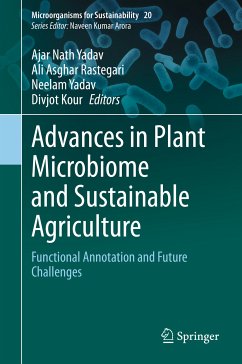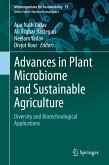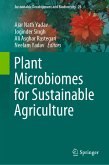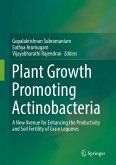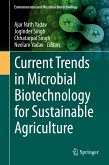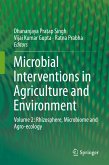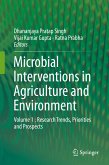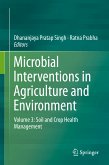Microbes are ubiquitous in nature, and plant-microbe interactions are a key strategy for colonizing diverse habitats. The plant microbiome (epiphytic, endophytic and rhizospheric) plays an important role in plant growth and development and soil health. Further, rhizospheric soil is a valuable natural resource, hosting hotspots of microbes, and is vital in the maintenance of global nutrient balance and ecosystem function. The term endophytic microbes refers to those microorganisms that colonize the interior the plants. The phyllosphere is a common niche for synergism between microbes and plants and includes the leaf surface. The diverse group of microbes are key components of soil-plant systems, and where they are engaged in an extensive network of interactions in the rhizosphere/endophytic/phyllospheric they have emerged as an important and promising tool for sustainable agriculture. Plant microbiomes help to directly or indirectly promote plant growth using plant growth promoting attributes, and could potentially be used as biofertilizers/bioinoculants in place of chemical fertilizers.
This book allows readers to gain an understanding of microbial diversity associated with plant systems and their role in plant growth, and soil health. Offering an overview of the state of the art in plant microbiomes and their potential biotechnological applications in agriculture and allied sectors, it is a valuable resource for scientists, researchers and students in the field of microbiology, biotechnology, agriculture, molecular biology, environmental biology and related subjects.
Dieser Download kann aus rechtlichen Gründen nur mit Rechnungsadresse in A, B, BG, CY, CZ, D, DK, EW, E, FIN, F, GR, HR, H, IRL, I, LT, L, LR, M, NL, PL, P, R, S, SLO, SK ausgeliefert werden.

